QuestionDear Readers-
Millie (my 28 month old Red Footed Tortoise) is about to be introduced to her first outdoor enclosure. Until now, she's spent most of her life in a 50 x 19 tank, with brief trips to the outdoors for random exercise. However, it's clearly time to establish a permanent place for her outside the house.
My questions are:
-Living in Texas, it should be noted that there seems to be a considerable fire ant, and chigger population. I was told by one person that "Diatomaceous Earth" would be a good way to rid her enclosure of such pests. I was then told by another that the use of DE would be harmful or fatal to Millie. So I'm hoping to find out what's the real word on DE?
-Next, how large and how much broken shade should she be given. I know full sun has been recommended, but this is Texas we're talking about and for the most part, any living thing placed in "Full Sun" down here ends up dead. This is like 'Threshold of Hell' kind of heat, so again, what's the consensus on this topic.
-Finally, and this is much less of a "life and death" question. With proper care, how long do Red Foots live?
Okay, that's all for now. Thanks in advance for reading and a special thanks for your response.
-Graham
AnswerHi Graham,
Congratulations on wanting to do the best for your redfoot. That's something I always appreciate hearing!
Although I don't know definitively, I don't think it would be a good idea to use DE inside the enclosure. DE can cause respiratory problems, and while I don't know how much detrimental effect there would be on a tortoise per se, since Millie will of course be at ground level it would be best not to add anything likely to be an issue. You could, however, use DE around the outside of the enclosure. I don't know what is effective against fire ants (not positive chiggers are a real problem for tortoises), though, since we don't have them here. For regular black ants, you can make a boric powder/sugar solution, but I don't know if fire ants are attracted to sugar. Sorry, I'm not much help in this regard!
Full sun is actually not recommended for any tortoise, regardless of what you've been told. Since they're ectotherms (basking animals) they need a source of heat to warm up, but a cooler area is equally important to prevent overheating. So any enclosure should always have a mix of sun and shade, and if it's a very hot area there should be considerable shade available. In addition, RFs are found in habitat ranging from heavy forest to forest edges to mixed grasslands, so they generally have a lot of cover. Some RFs like to be out in the open, but many will hang out under plants, bark, etc. It's best to offer a variety of environments--a few open areas, some deep shade, some heavily planted areas with lots of hides, a very muddy, wet area, etc. I would say that no more than 25% of the enclosure should be in sun, and if it's that hot really just 10% would be fine because the amount of basking time required isn't going to be very long. UVB rays do penetrate into shade, so that's not a problem. Keep in mind that RFs need a lot of moisture in their environment, so if you don't get frequent rain you'll need to water often. It would also be a good idea (if you have adobe-type soil) to mix in organic matter to help keep moisture in.
If your winter temperatures don't drop too low, she can stay outside all year round with overnight shelter. I'd say a drop to about 55 degrees is fine for an unheated shelter, as long as it warms up during the day. Colder than that and you'll need a dog house or similar with heat, but if it stays low during the day for an extended period of time you'll probably need to overwinter her inside.
One other point to consider when building an outdoor enclosure: predators. Raccoons in particular pose an extreme threat to tortoises. For a number of years I was able to allow my tortoises to stay outside in their enclosures overnight, but raccoons have moved into our area and now I have to lock them in a separate box at night because I can't secure their enclosures enough to guarantee keeping a raccoon out. The good thing about redfoots is they don't dig much, so you don't have to worry about them digging out (although they do climb), but predator-proofing can be a challenge.
As for age, I don't think anyone knows for sure how long they can live. The oldest I've heard of was 70 years, but that tortoise was still alive and healthy, so I'd guess 80-100 years, maybe longer.
I hope this was helpful. Please let me know if I can help in any other way!

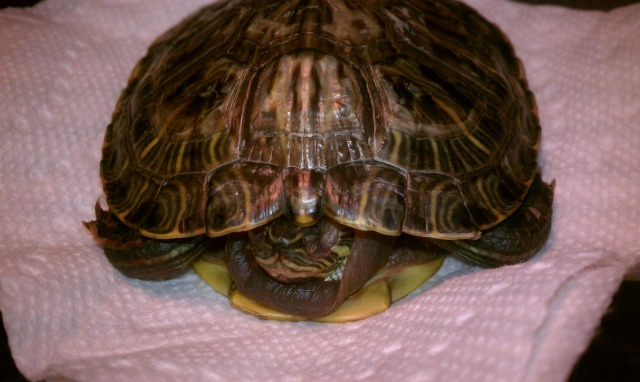 RES turtle being treated for Septicemia
QuestionQUESTION: Hello,
I have a RES turtle being tre
RES turtle being treated for Septicemia
QuestionQUESTION: Hello,
I have a RES turtle being tre
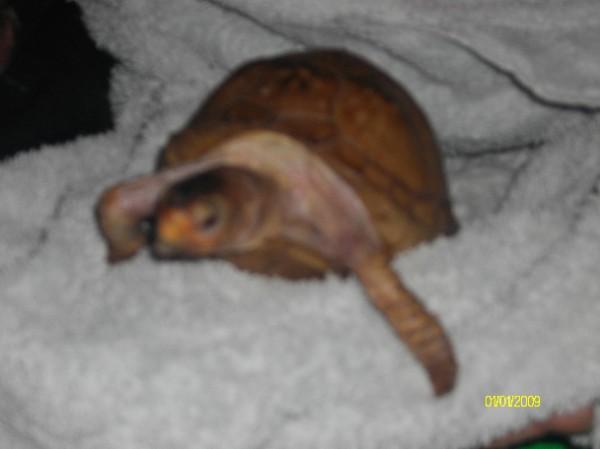 what kind of turtle/tortoise do i have?
Question
my turtle
i have no idea what kind of turtle/t
what kind of turtle/tortoise do i have?
Question
my turtle
i have no idea what kind of turtle/t
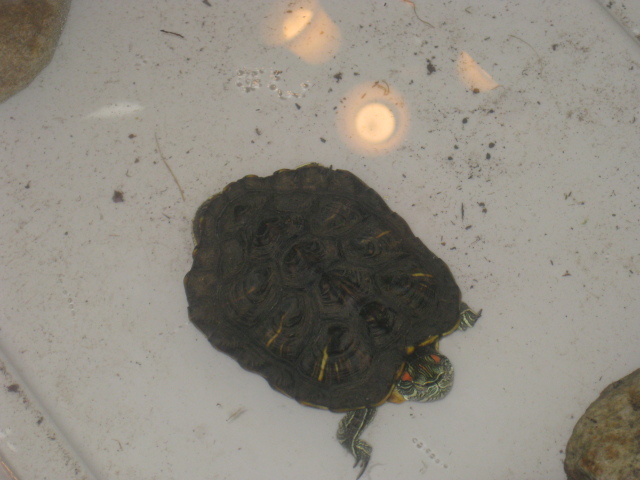 Possible RES Found
Question
Turtle
Hello!
One of my neighbo
Possible RES Found
Question
Turtle
Hello!
One of my neighbo
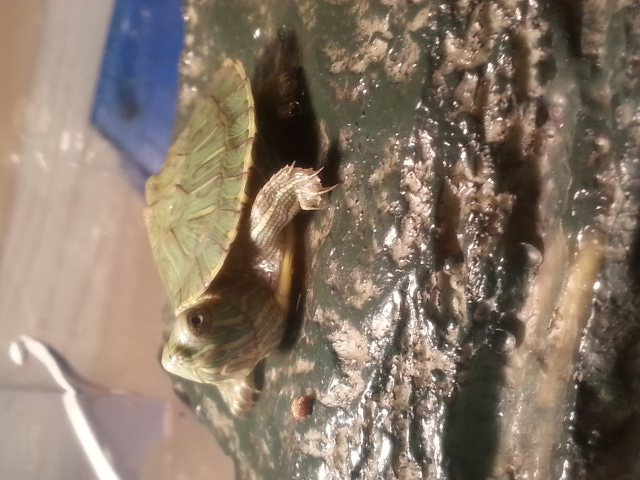 help please :(
Question
leo
Hi. I just ordered two baby red ear
help please :(
Question
leo
Hi. I just ordered two baby red ear
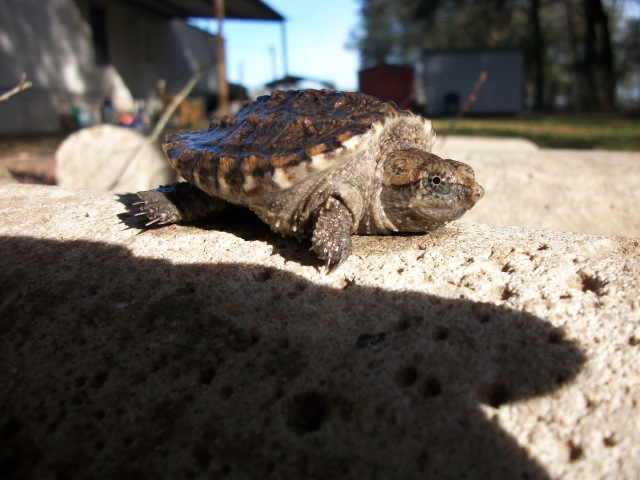 Species identification?
QuestionSnapping Turtle
QUESTION: Can you tell m
Species identification?
QuestionSnapping Turtle
QUESTION: Can you tell m